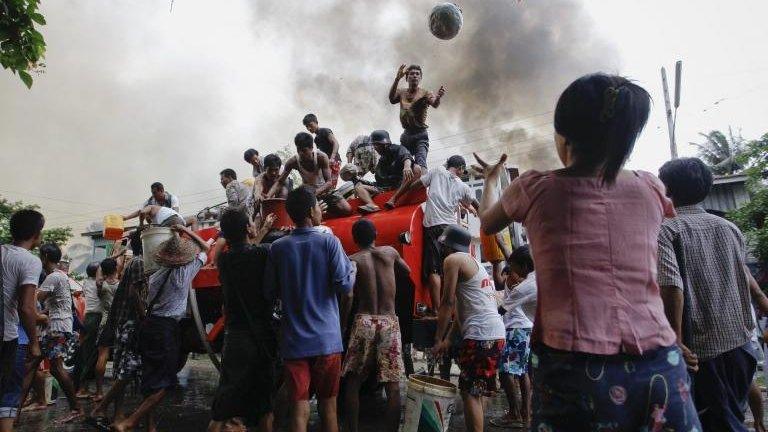Documents 'show Myanmar Rohingya discrimination is policy'
- Published
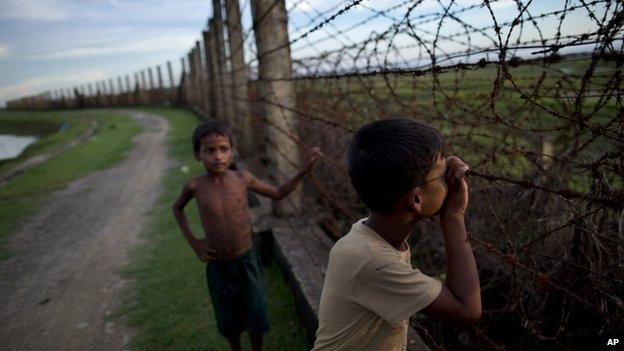
A new report says Myanmar's government restricts the movements of Muslim Rohingya in Rakhine state
A rights group says it has evidence of Myanmar's government discriminating against Muslim Rohingya, restricting their movements and family size.
Fortify Rights said that the government's orders, shown in leaked documents, amounted to "state policies of persecution" in Rakhine state.
There was no immediate response to the report from the Burmese authorities.
The government of Myanmar, also known as Burma, views the Rohingya as foreign migrants, not citizens.
There is widespread public hostility towards the Rohingya in Buddhist-majority Myanmar. The Rohingya, on the other hand, feel they are part of Myanmar and claim persecution by the state.
The UN has described the Rohingya as one of the most persecuted minorities in the world.
'Marriage restrictions'
In a report, external, Fortify Rights said it had analysed 12 government documents from 1993 to 2013, and found that government policies imposed "extensive restrictions on the basic freedoms of Rohingya Muslims in Myanmar's Rakhine state".
The policies restricted Rohingya's "movement, marriage, childbirth, home repairs and construction of houses of worship", it said.
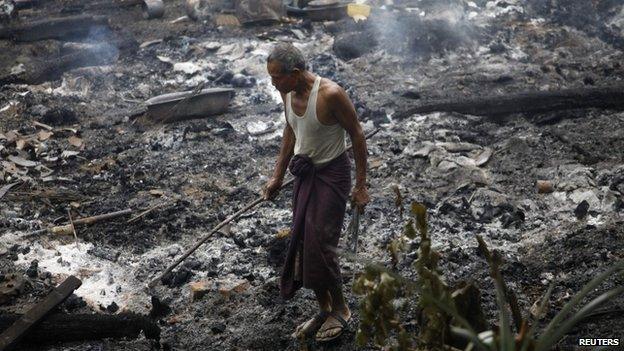
Clashes between Muslims and Buddhists in Rakhine state have razed homes and displaced thousands
Rohingya Muslims in Rakhine state were also prohibited from travelling between townships, or out of Rakhine, without permission, the report said.
The report said a government order stipulated that married Rohingya couples in parts of Rakhine state could not have more than two children, while another document said Rohingya had to apply for permission to marry, in what the report described as a "humiliating and financially prohibitive" process.
One document published in the report said officials should force a woman to breastfeed her child if there were doubts over whether she was the birth mother.
The restrictions have been known about for some time, but what is new is that campaigners say they have the official orders issued by the Buddhist-dominated local government in Rakhine state, the BBC's Jonah Fisher in Rangoon reports.
It is an oft-stated fear of Myanmar's Buddhists that the larger families of Muslims mean they will one day be in the majority, our correspondent adds.
Tensions remain high between Buddhist and Muslim communities with the latest violence - an attack on Rohingya villagers in January - thought to have killed scores of people.
In 2012 widespread rioting and brutal clashes between Rakhine Buddhists and Muslims, largely thought to be Rohingya Muslims, left almost 200 dead and displaced thousands.
- Published13 February 2014
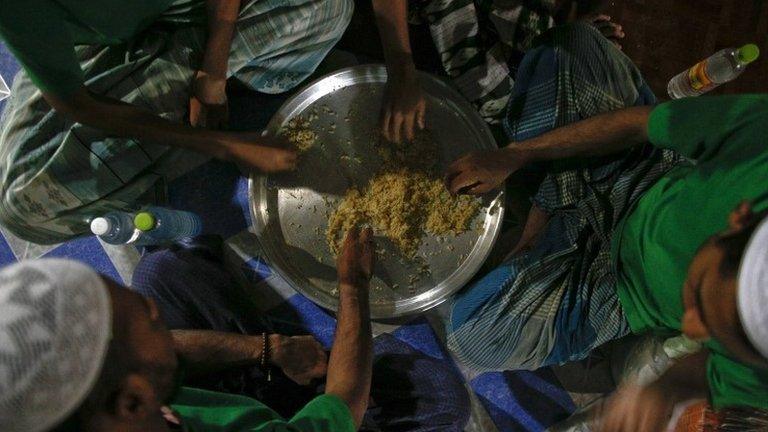
- Published24 January 2014
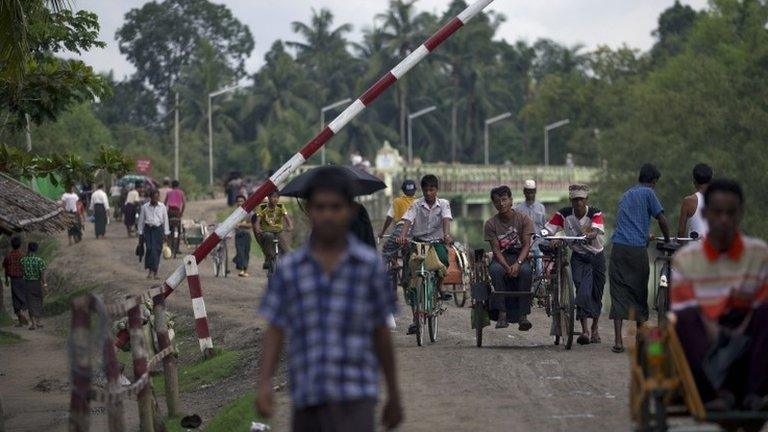
- Published3 July 2014
